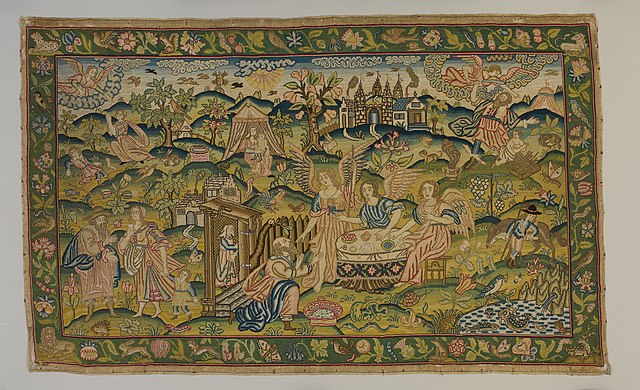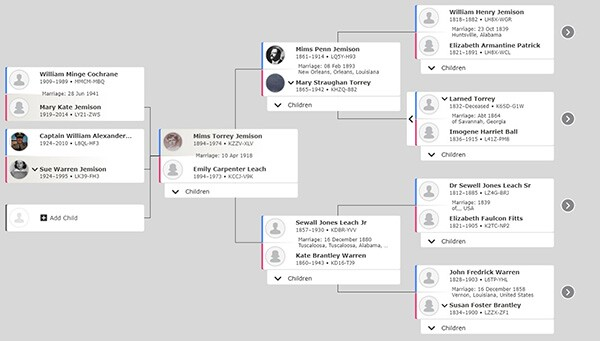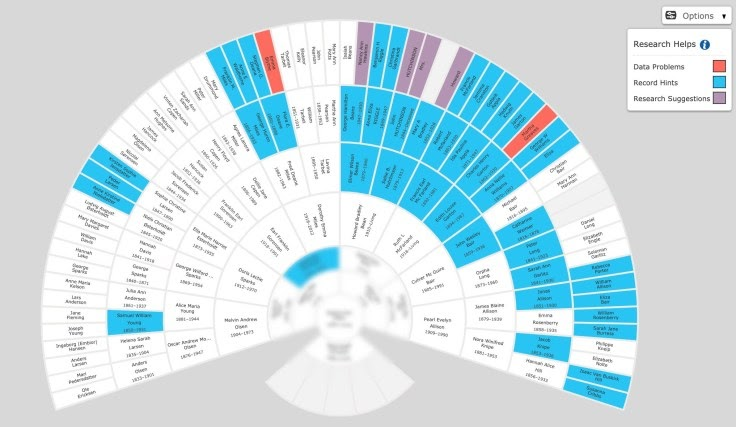

Come, Follow Me is a resource offered by The Church of Jesus Christ of Latter-day Saints. It is designed to be used in the home to support personal and family scripture study to build faith in Heavenly Father and His plan of salvation and in the Savior Jesus Christ and His Atonement. Come, Follow Me is self-contained and adequate, when used properly. Products and materials designed to supplement this resource, though they may be helpful in some instances, are not necessary for a successful home study program.

Who is included in the Abrahamic covenant?
From Come, Follow Me:
When the Lord made His covenant with Abraham, He promised that this covenant would continue in Abraham’s posterity, or “seed,” and that “as many as receive this Gospel shall be … accounted thy seed” (Abraham 2:10–11). This means that the promises of the Abrahamic covenant apply to members of the Church today, whether they are literal descendants of Abraham or adopted into his family through baptism and conversion to the gospel of Jesus Christ (see Galatians 3:26–29; Doctrine and Covenants 132:30–32). To be counted as Abraham’s seed, an individual must obey the laws and ordinances of the gospel.
“The Lord granted unto Abraham’s seed the great blessings of truth, priesthood, and the ordinances of exaltation, but he expected the recipients of these blessings to covenant to do something in return. ‘For of him unto whom much is given much is required’ (D&C 82:3), the Lord explained to the Prophet Joseph Smith…In our day, when we are granted the fulness of the gospel and when we actively participate in both missionary and temple work, we are fulfilling the Abrahamic covenant to its fullest.” (The Abrahamic Covenant)

Discuss as a family how temple and family history work contribute to the fulfillment of the Abrahamic covenant. How is the Abrahamic covenant available to all people? How do those who are not literal descendants of Abraham become members of the family of Israel? In his article, The Abrahamic Covenant: A Blessing for All People, Kent P Jackson lists four major aspects of the Abrahamic covenant you may want to include in your discussion:
You may want to also read more about “The Abrahamic Covenant” in these resources: Abrahamic Covenant, the Introduction to Family History - Student Manual and Teacher Manual, Children of the Covenant, and Why the Covenant Path.

“As part of our efforts to minister in a holier and higher way, Church leaders have begun to talk about member missionary work as ministering to all, “regardless of whether their names appear on your ministering sister or brother list.”1 This more excellent way is a mindset change—an enhanced approach that can change everything about how and why we minister to others.” (Ministering to All)
Everyone has an innate desire to know who they are and where they came from. Learning about your ancestors and heritage gives you a sense of belonging. You can minister to others and be a missionary as you help them learn of their ancestors and feel that sense of belonging.
Family history can open doors since people enjoy learning about their own family. Choose someone you can help discover the world of their family history. (First, make sure that the person's family tree is set up.)
See also: Come, Follow Me Companion 2022, Week #4
Genesis 12:1–3; 13:15–16; 15:1–6; 17:1–8, 15–22; Abraham 2:8–11
The Abrahamic covenant blesses me and my family.
From Come, Follow Me:
Because all members of the Church are included in the Abrahamic covenant, you might want to spend some time pondering why this covenant is meaningful in your life. Record your thoughts about the following questions:
How can the promises found in Abraham 2:8–11 bless me and my family? (see also Genesis 12:1–3; 13:15–16).
What do I learn about the Abrahamic covenant from Genesis 15:1–6; 17:1–8, 15–22?
What do I feel inspired to do to help fulfill the promise that “all the families of the earth shall be blessed”? (Abraham 2:11).
You might consider that some of the earthly blessings promised to Abraham and Sarah, such as inheriting a promised land and being parents of a great posterity, have eternal parallels. These include an inheritance in the celestial kingdom (see Doctrine and Covenants 132:29) and eternal marriage with eternal posterity (see Doctrine and Covenants 131:1–4; 132:20–24, 28–32). It is “in the temple,” President Russell M. Nelson taught, that “we receive our ultimate blessings, as the seed of Abraham, Isaac, and Jacob” (“The Gathering of Scattered Israel,” Ensign or Liahona, Nov. 2006, 80).

“Families are specifically blessed through the Abrahamic covenant because the crowning blessing of the gospel covenant is eternal marriage. Through priesthood ordinances, which include celestial marriage, or temple marriage, for the living and the dead, families can be eternally bound together. The posterity of Abraham today may also perform ordinances in the temples for their deceased ancestors and others. Ultimately, the greatest way families of the earth are blessed is through the Atonement of Jesus Christ, a descendant of Abraham. Because of His Atonement, it is possible to receive all the blessings of eternal life.” (Chapter 8: The Abrahamic Covenant)

“Ask one member of the family to move to the far side of the room, away from the others. Discuss how you would feel if one of your family could not be with you in the next life.
“If possible, show a picture of the temple nearest you, or write the word temple on a piece of paper [See Temples | The Church of Jesus Christ of Latter-day Saints].
“Point out that Heavenly Father loves all of his children. He made it possible for these people who died without the gospel to receive all of the sacred ordinances. Have the person return to the group...Explain that through the temple, the dead can receive all of the blessings and ordinances of the gospel—baptism, endowment, and sealing. In this way, all of our ancestors who accept the Lord’s plan can be sealed to our family.” (Family Home Evening Resource Book, Family History)


“Show and study a pedigree chart from a branch of your family; or, write the names of children, parents, and grandparents on a sheet of paper. Explain that all of the people, plus their parents, grandparents, and so on need to be sealed together in an unbroken chain.” (Family Home Evening Resource Book, Family History)
Learn How to Find Ancestors in Need of Temple Work in the Family Tree using the The FamilySearch Fan Chart. Discuss and plan as a family how you can find those ancestors needing help completing their work.

You may want to view additional Family Tree Views on FamilySearch or print fan charts and pedigree charts. For additional help printing, watch How to Print Pedigree Charts and Family Group Sheets on FamilySearch. See thefhguide.com/project-1-family-tree if you need help accessing your family tree in FamilySearch.

Avoid Common Research Mistakes
When research challenges arise, they don't need to derail your progress. With some best practices and creative thinking, you can keep your family history work moving along. See Solve Problems: FS Project 4, Goal 7 in The Family History Guide.